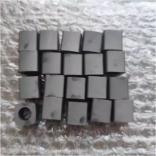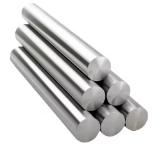Title: How to Discover if you’re Allergic to Metal Plate
(How Do You Know If You Are Allergic To Metal Plates)
As we navigate through life, metal plates are often encountered, whether it’s dining in a restaurant or simply walking around your home. These plates may come in various colors, designs, and textures, but how do we know if they’re allergy-free? Here are some tips on how to identify a metal plate that might be an allergy in your body.
Firstly, it’s important to keep in mind that everyone is different when it comes to their sensitivity towards certain metals. Some people may have trouble accepting metal plates at first, while others may not notice anything out of the ordinary. However, over time, these differences can become less pronounced, making it easier to identify the type of metal plate you’re allergic to.
Here are some common factors that can affect someone’s reaction to metal plates:
1. Age: As we age, our immune system becomes more robust, which makes us more susceptible to allergic reactions. Younger people may be more likely to develop allergies due to their young body and growing immune system.
2.: Certain races may be exposed to metal substances than others. For example, individuals from Asian cultures may be more sensitive to certain types of metal dishes like BBQ (beef and pork) because they’re traditionally associated with spicy flavors.
3. Gender: and may be more sensitive to certain types of metal compounds, such as those found in steel, aluminum, and bronze. This can affect the texture, color, and flavor of metal plates in both men and women.
4. Health conditions: People with certain health conditions, such as diabetes, heart disease, and even cancer, may experience symptoms of allergic reactions when using metal plates. In these cases, seeking medical attention for these issues is necessary.
If you suspect that you’re allergic to metal plates, here are some steps you can take:
1. Contact your healthcare provider: If you’ve developed a sudden or severe allergic reaction to metal plates, contact your healthcare provider immediately. They can conduct an análisis of your blood to determine what kind of allergies you have.
2. Avoid exposure to metal: Since you have identified the type of metal plate you’re allergic to, try to avoid using it in any way until you’ve settled into your new diet. This includes avoiding eating items made of metal, using caution when handling food, and avoiding drinking items made of metal.
3. Try to manage your symptoms: If you continue to experience allergic reactions despite taking the precautions above, consider speaking with a dermatologist who specializes in identifying-related disorders. They can help you develop a treatment plan based on your specific symptoms and possible triggers.
(How Do You Know If You Are Allergic To Metal Plates)
In conclusion, understanding the signs of metal allergies and taking appropriate action can help you avoid developing serious health problems. By staying vigilant and taking proactive steps to manage your allergies, you can maintain your physical and mental well-being while also avoiding harmful reactions to metal plates.
Inquiry us
if you want to want to know more, please feel free to contact us. (nanotrun@yahoo.com)


